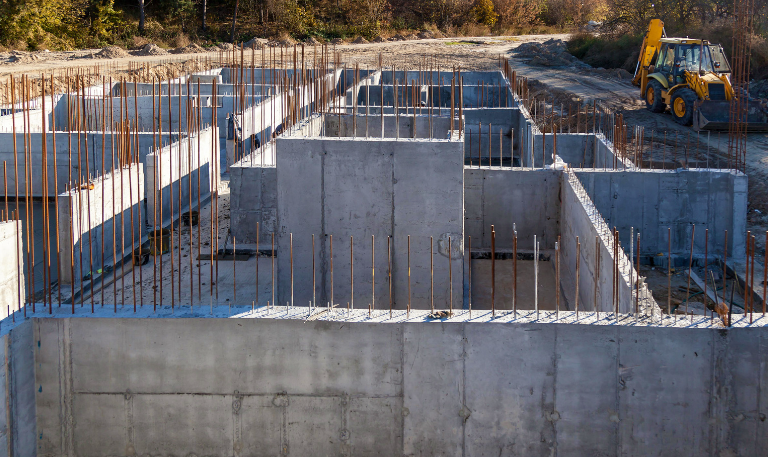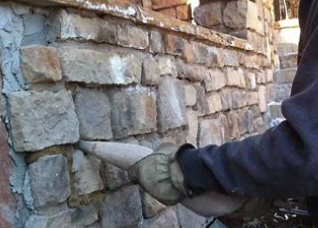Rigid Foam Insulation: Advantages & Disadvantages
Are you looking to make your home more comfortable and energy-efficient? Rigid foam insulation can help you achieve that. It comes in boards or panels of various thicknesses and materials. You can use it for walls, roofs, floors, basements, crawl spaces, and more. But is rigid foam insulation right for your home?
What is Rigid Foam Insulation?
The performance of insulation is measured by its R-value—higher values indicate better resistance to heat flow. Because it is largely made up of air, plastic foams like those in rigid foam insulation make good insulation. The type and density of the foam affect the R-value of rigid foam insulation; usually ranging from 4 to 8 per inch.
- Expanded polystyrene: This rigid foam insulation is the most common and cheapest type. It has a low density and R-value (about 4 per inch), and is typically white in color.
- Extruded polystyrene: This is a more expensive and durable type of rigid foam insulation. It is typically colored blue or pink and has a medium density and a medium R-value (about 5 per inch).
- Polyisocyanurate: This is the most expensive and efficient type of rigid foam insulation. It is typically yellow and has a high density and R-value (about 6 to 8 per inch).
Advantages of Rigid Foam Insulation
Rigid foam insulation has several notable advantages, making it an appealing choice for many homeowners. Here is a closer look at its benefits:
- Excellent insulation performance: Rigid foam insulation boasts high R-values, which measure its thermal resistance. This means it provides exceptional insulation against heat transfer, keeping your home comfortable and energy-efficient.
- Moisture resistance: Unlike other insulation materials, rigid foam resists moisture absorption. It does not retain water, preventing mold growth and rot. This means it works well in high humidity or moisture, such as in basements or crawl spaces.
- Enhanced air sealing: It helps create a tighter building envelope, reducing air leakage and drafts. This can improve indoor air quality and increase energy savings by minimizing heat loss or gain.
- Soundproofing capabilities: It also offers excellent soundproofing properties. It can help reduce noise transmission between rooms and from outside, creating a quieter and more peaceful indoor environment.
Disadvantages of Rigid Foam Insulation
While rigid foam insulation has numerous benefits, it is crucial to consider its drawbacks. Here are some disadvantages:
- Higher initial cost: Compared to other insulation options, rigid foam insulation tends to have a higher upfront cost. However, it would help if you considered the long-term benefits and possible energy savings that can make up for this initial cost.
- Professional installation required: Installing rigid foam insulation requires expertise and precision. Hiring a professional insulation contractor is typically best to ensure proper installation and maximum effectiveness.
- Limited eco-friendliness: The choice of foam and blowing agent, particularly those made from petroleum-based materials, can have a higher environmental footprint. However, eco-friendly alternatives, such as those made from recycled materials or with lower VOC emissions, are available.
- Vulnerable to damage: Rigid foam insulation is relatively sturdy, but it can be susceptible to damage from impacts, moisture, and UV exposure. Proper protective measures, such as covering it with a protective barrier or choosing a more durable type, are necessary in high-risk areas.
Rigid foam insulation offers significant advantages in insulation performance, moisture resistance, air sealing, and soundproofing. It may initially cost more and need professional installation, but the long-term benefits are worth it. Contact an experienced insulation supplier like Ernest Maier for personalized advice and contractor pricing.

VP of Sales- Accessory DivisionMike Simon
Latest News

4 Ways To Reinforce Concrete
Concrete is one of the most fundamental materials used in construction. If you’re working on a domestic project or a […]

The Environmental Benefits Of Using Ready-Mix Concrete
The construction industry is changing quickly to meet the growing demand for sustainability and eco-friendly practices. One of the most […]

6 Essential Tips For Grouting Stone Veneer
Grouting stone veneer is an important step in the installation process that can significantly impact the overall look and durability […]

Should You Fill Hollow Concrete Blocks?
Hollow concrete blocks are widely used in construction due to their strength, versatility, and lighter weight compared to solid blocks. […]
